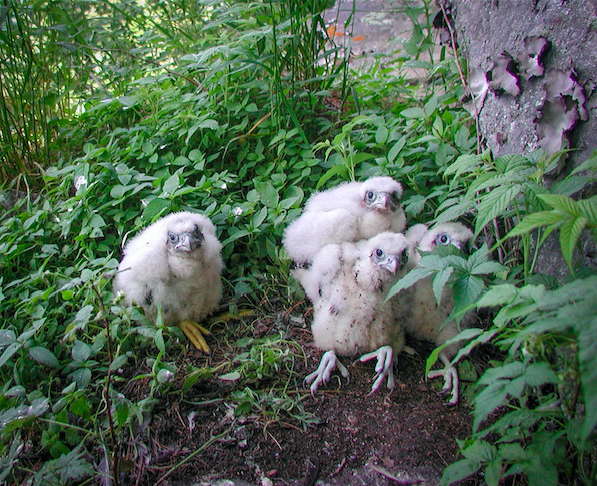LOWELL — Several cliff areas across the state are currently closed to protect nesting peregrine falcons, and the Vermont Fish & Wildlife Department and Audubon Vermont are recommending hikers check to see if the area you’re planning to hike or climb in is open.
“Peregrine nesting is well underway this spring,” said John Buck, Vermont Fish & Wildlife Department biologist. “The falcons are very sensitive to human presence, so we ask climbers and hikers to please maintain a respectful distance from all nests. These closures help people to choose an alternative route in advance.”
The Vermont Fish & Wildlife Department partners with Audubon Vermont to monitor the sites throughout the nesting season. These sites will remain closed until August 1 or until the department determines the risk to nesting falcons has passed.
Barnet Roadcut (Barnet) – Route 5 pullout closed
Bolton Notch (Bolton) – Upper west cliff closed to climbing
Bone Mountain (Bolton) – Portions of cliff closed to climbing
Deer Leap (Bristol) – Closed
Fairlee Palisades (Fairlee) – Cliff top closed
Hazen’s Notch (Lowell) – Cliff closed to climbing
Marshfield Mt (Marshfield) – Portions closed to climbing
Mt. Horrid (Goshen) – Great Cliff overlook closed
Nichols Ledge (Woodbury) – Cliff top closed
Rattlesnake Pt (Salisbury) – Cliff top closed
Snake Mountain (Addison) – Overlook south of pond closed
Table Mt (Manchester) – Closed
Additional sites may be added to the closed list if nesting falcons choose new sites.
“The areas closed include the portions of the cliffs where the birds are nesting and the trails leading to the cliff tops or overlooks,” said Buck. “In many cases the lower portions of the trails are still open, and we encourage people to get out with good binoculars or a scope to enjoy watching the birds from a distance. We will update the closure list as more nesting data are reported.”
Last year saw a record nesting season for Vermont’s peregrine falcons, with 67 young birds successfully growing up and leaving the nest.
The peregrine falcon was removed from the endangered species list in 2005 due in part to people respecting the falcon’s nesting period.








